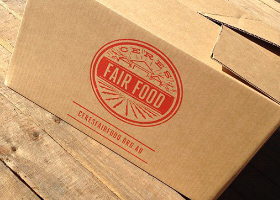Reasons to Choose Organic
Author | Eleonore Bridier, CERES
Some scientific studies have shown that the concentration of pesticides, herbicides and other chemicals in conventional produce is supposedly safe to ingest over a lifespan.
If you find it difficult to believe, as we do, that these chemicals do not affect our health -either in the form of causing allergenic sensitivities or long term health problems – then you may prefer the peace-of-mind provided by an organic diet. Nonetheless, we believe the following benefits of organic food are rather less debatable.
Better for farm workers
Farm workers are the people who have to deal with these chemicals and this is risky. By eating organic you know that the food you are eating is not only healthy for you and your family, but also for the people who actually produce your food.
Healthy Soils
Scientists agree high-quality soil is the basis for healthy agro-ecosystems. For years, conventional farming used methyl bromide (a very toxic ozone depleting pesticide) to sterilize soil and this has lefts soils seriously depleted of micro-organisms and therefore, nutrients. Studies show that Organic fields contain significantly higher amounts of nutrients such as boron, sodium, iron and zinc (which is deficient in Australian soils).
Keeps harmful chemicals out of our water systems
Organic farmers do not use pesticides, herbicides, fungicides or insecticides, all of which pollute our waterways, our drinking water and our coasts. Over 30,000 tons of these chemicals were used last year and are major cause of the destruction of the Great Barrier Reef and are contributing to the continued increased salinity of Australia’s water table.
No genetic modification
Long term human health and biodiversity effects of GMO are unknown as there has been no independent testing. Australian law means that food in supermarkets does not have to be labelled as GMO, however with certified organic farmers – like the ones we buy from – you are guaranteed NO GMO.
No GMO means a more equitable global food system
Though the health effects of GMO are not clear, social impacts of corporate patents on seed varieties means propagating crops becomes a risky affair for many farmers. GMO varieties are much more prolific and resilient, invading farmers’ fields. Sometimes the modification removes the ability of farmers to save and replant seeds in another season. Even if they no longer wish to grow GMO, they cannot guarantee the eradication of the variety from their crops, nor can the escape the debt they have fallen into on the pretext that the more expensive variety would yield a higher return on investment.
Organic farming is more efficiently produced
Organic farming is much less reliant on fossil fuels as most weeding is done manually. Organic farmers don’t use inorganic fertilisers. Nitrogen fertiliser is derived from natural gas and is the single main use of energy in farming, accounting for over 37% of the total energy used by farmers.
Protects biodiversity
There is on average 30% more biodiversity on organic farms when compared to conventional farming methods. Why does this matter? More biodiversity means healthier soils, less inputs & higher yields. In short, biodiversity safeguards the long term sustainability of our food system.
Tastes better
Yes it does! If you need some science to back this up, then there are plenty of stats out there. But how about doing your own tests? Try comparing ‘in season’ organic fruit and veg such as organic tomatoes, strawberries and carrots. You will notice the difference in freshness and flavour.






